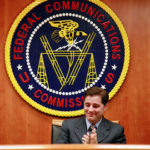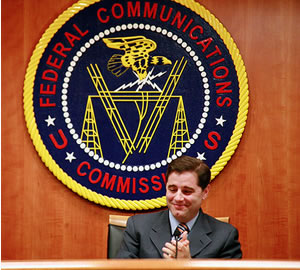
Higher education technologists, who largely support the Federal Communications Commission’s (FCC) net neutrality plans, kept an eye on reports Aug. 5 that internet giants Google and Verizon were on the verge of announcing a deal that would provide faster web speeds only to content providers who could pay a premium.
IT decision makers in colleges and universities have said such a precedent could undermine major strides in providing educational content online, especially for small institutions without massive technology budgets.
After media reports said Google, which owns YouTube, and Verizon were hammering out the final details in the creation of “pay tiers” for internet users–a system that the FCC’s net neutrality plan was designed to avoid — Google responded with a statement calling the reports “quite simply wrong.”
The statement said Google had not “had any conversations with Verizon about paying for carriage of Google or YouTube traffic. We remain as committed as we always have been to an open internet.”
David Fish, a Verizon spokesman, said in an Aug. 5 statement that the media report “fundamentally misunderstands our purpose. As we said in our earlier FCC filing, our goal is an internet policy framework that ensures openness and accountability, and incorporates specific FCC authority, while maintaining investment and innovation. To suggest this is a business arrangement between our companies is entirely incorrect.”
Education-technology advocates said that without net-neutrality rules, the price of online learning soon could prove untenable for students. If broadband providers are left unchallenged, the price of web access could skyrocket in coming years, discouraging students from pursuing web-based college courses, they said.
Higher-ed IT officials said they were concerned with the barrage of news stories detailing the private meetings between Google and one of the web’s leading service providers, but they would not speak on the record after Google and Verizon denied the reports and cast suspicion on the news outlets.
Still, some officials detailed the potential repercussions of a “pay tier” system that undermined net neutrality, a plan FCC Chairman Julius Genachowski has said is needed to prevent phone and cable companies from using their control over web access to favor some online content and services over others.
“Tiered pricing based solely on the brand or source of content is a very bad idea,” said Brenda van Gelder, director of Virginia Tech’s eCorridors program, which promotes web access in local Virginia communities.
van Gelder added that nonprofit organizations, rural entrepreneurs, “community colleges, and perhaps even large research universities [that] do not have connectivity to the national education networks” would suffer in a market that limited internet speeds for customers who couldn’t pay top dollar.
Google and Verizon released a joint statement Oct. 21 affirming that “both [companies] think it’s essential that the internet remains an unrestricted and open platform–where people can access any content (so long as it’s legal), as well as the services and applications of their choice.”
Google CEO Eric Schmidt and Verizon President and CEO Lowell McAdam said in the statement that the two companies “might seem unlikely bedfellows in the current debate around network neutrality, or an open internet.”
Schmidt and McAdam also warned against government agencies or web service providers getting between internet users and their online experience.
“The minute that anyone, whether from government or the private sector, starts to control how people use the internet, it is the beginning of the end of the net as we know it,” they said.
Net neutrality took a hit in April when the U.S. Court of Appeals for the District of Columbia ruled that the FCC lacks the authority to require broadband providers to give equal treatment to all internet traffic flowing over their networks.
That was a big victory for Comcast Corp., the nation’s largest cable company, which had challenged the FCC’s authority to impose such net neutrality obligations on broadband providers.
The court case centered on Comcast’s challenge of a 2008 FCC order banning the company from blocking its broadband subscribers from using an online file-sharing technology known as BitTorrent.
The commission, at the time headed by Republican Kevin Martin, based its order on a set of net-neutrality principles it adopted in 2005 to prevent broadband providers from becoming online gatekeepers of content flowing over their lines.
Markham Erickson, executive director of the Open Internet Coalition–which includes web giants like Google, YouTube, Facebook, and the education technology organization EDUCAUSE–said in an April 6 statement that the court decision means the FCC is “now unable to police the internet against anti-competitive and anti-consumer behavior by broadband providers” and could endanger the agency’s national broadband plan, which has broad support among educators.
Sixteen percent of the 3,439 community college campuses in the U.S. have access to the kind of high-speed internet service that is available at more than 90 percent of research universities, according to the FCC.
A group of more than 20 open internet and consumer advocacy organizations sent a letter to Genachowski Oct. 21 that said more than 1.6 million Americans have declared their support for net-neutrality laws.
Material from the Associated Press was used in this report.
- Research: Social media has negative impact on academic performance - April 2, 2020
- Number 1: Social media has negative impact on academic performance - December 31, 2014
- 6 reasons campus networks must change - September 30, 2014
